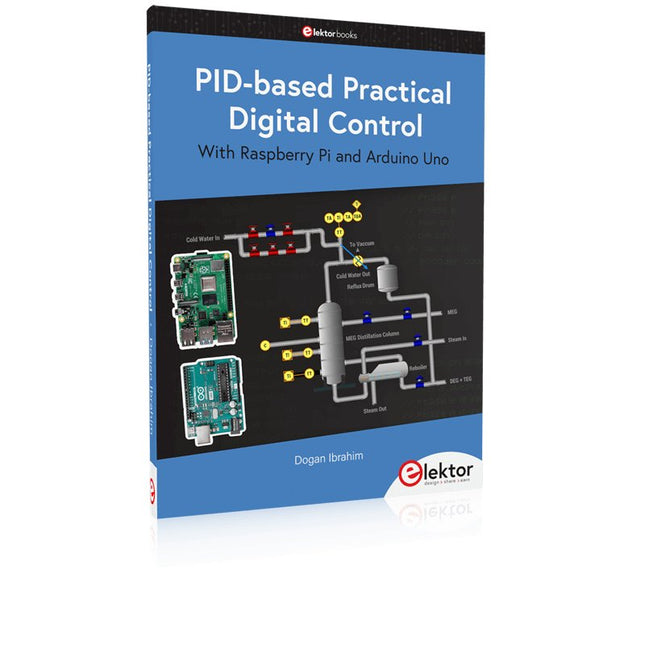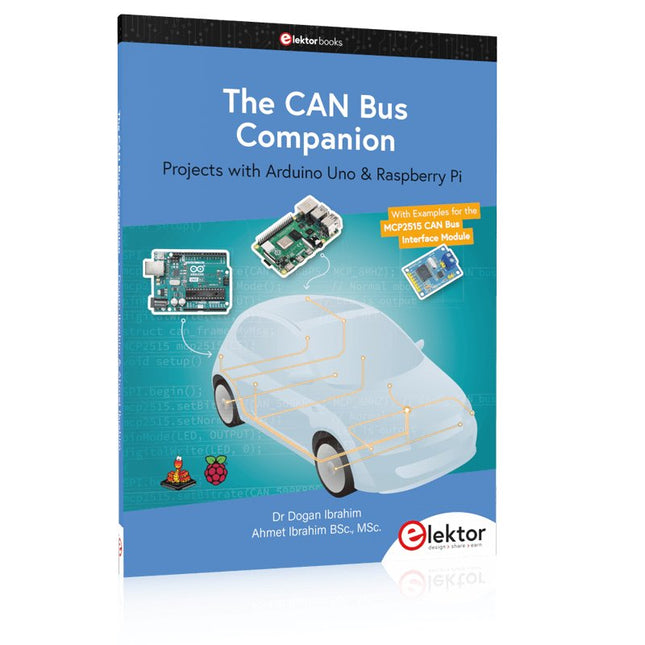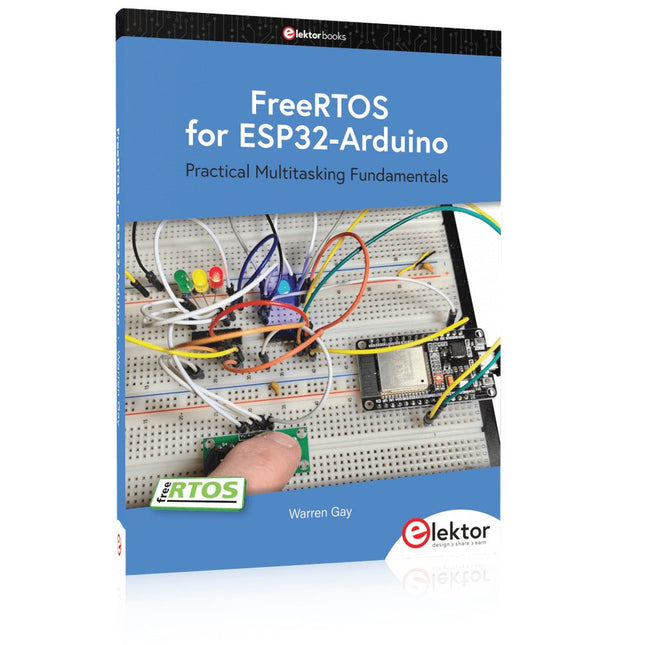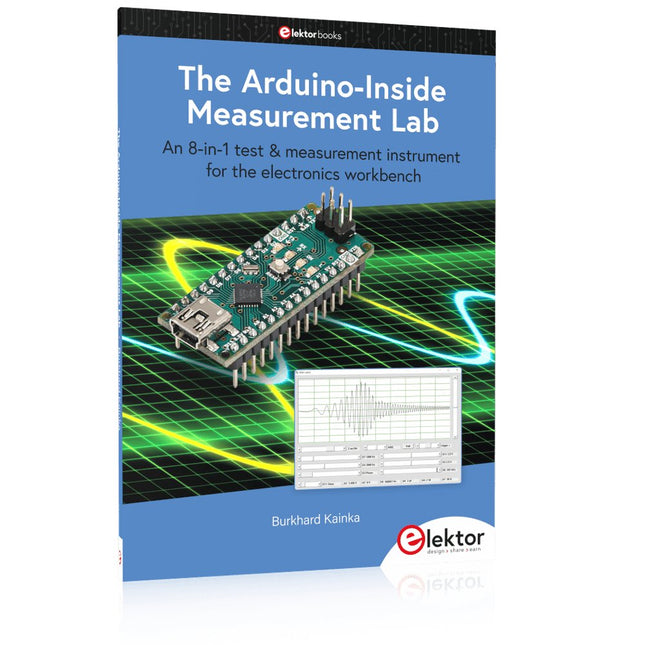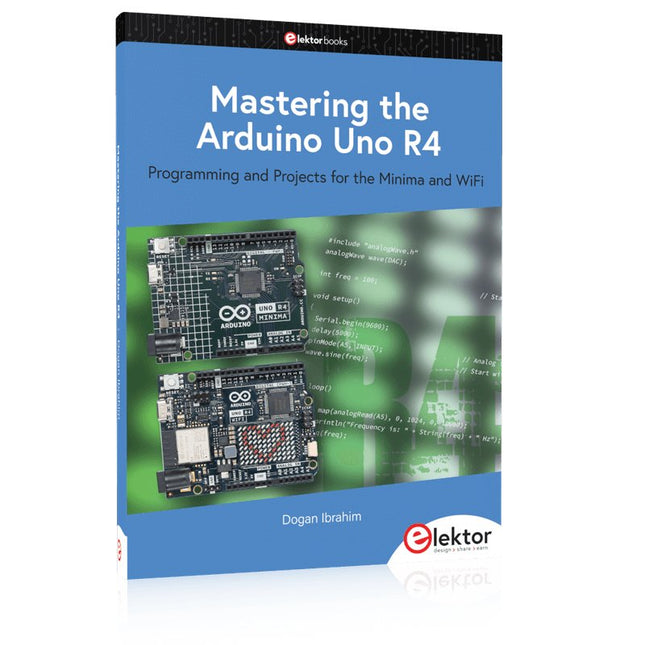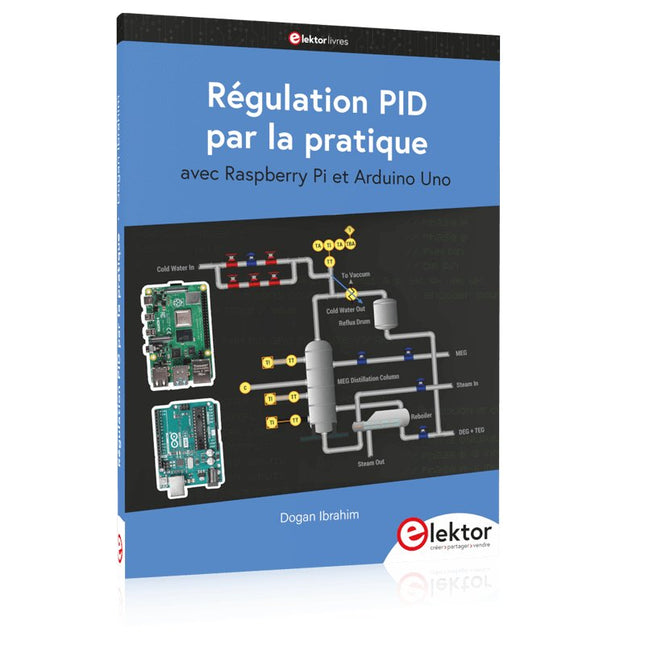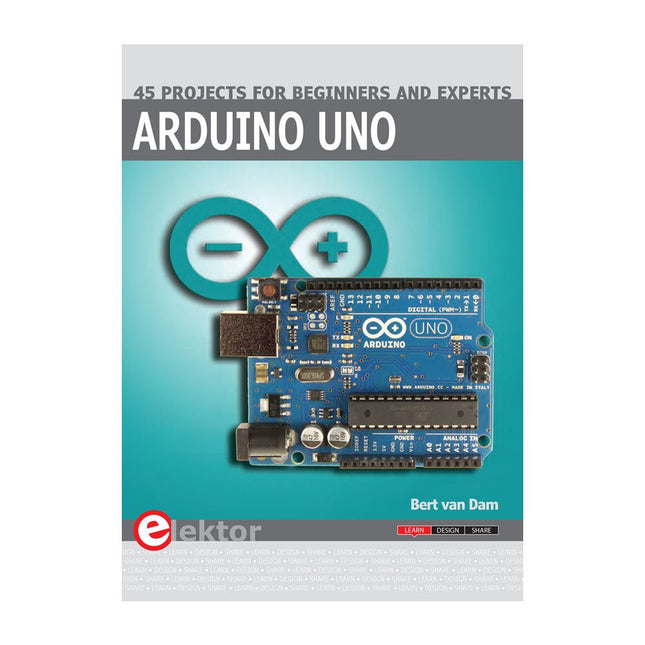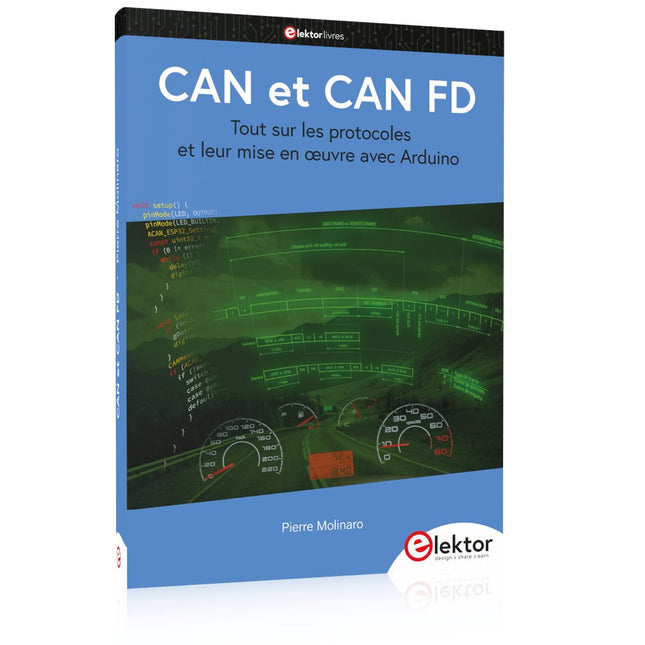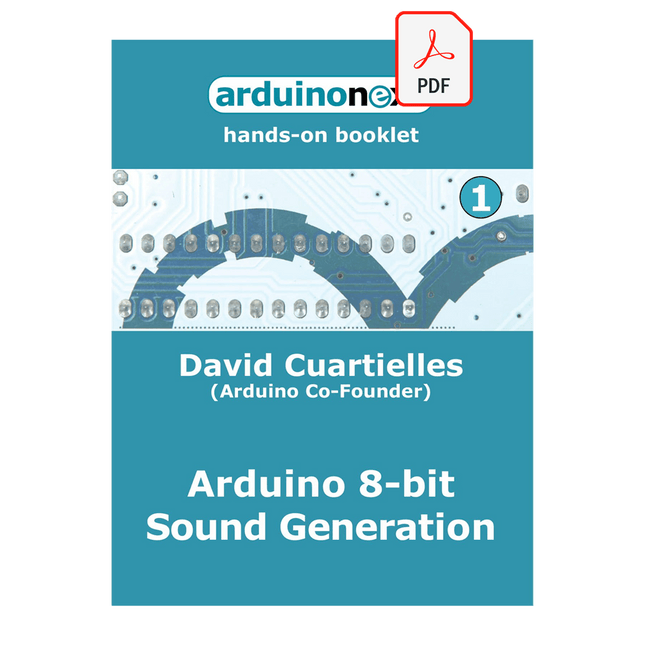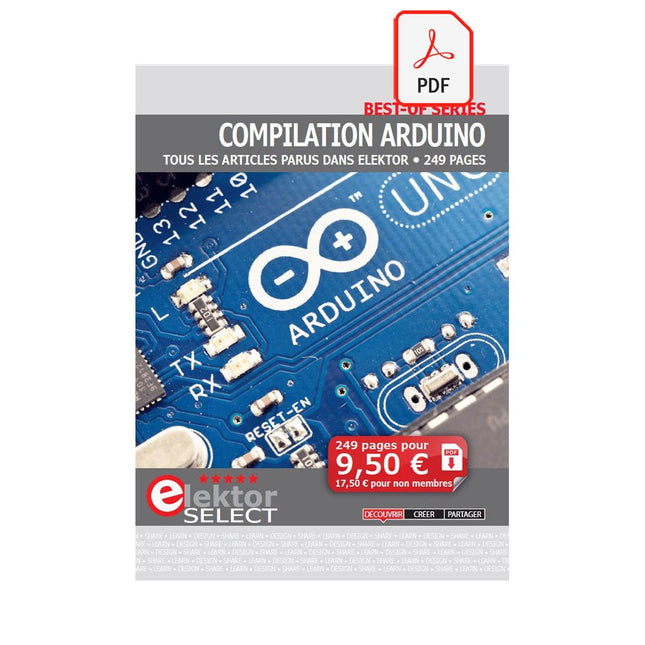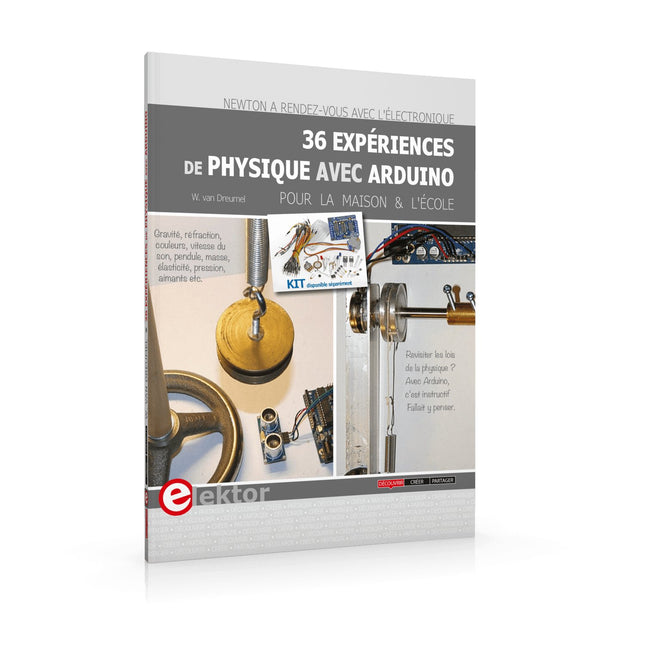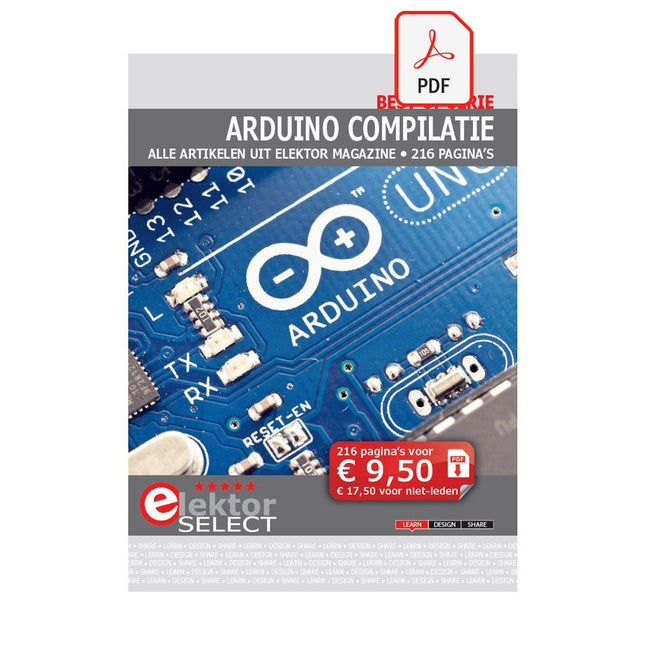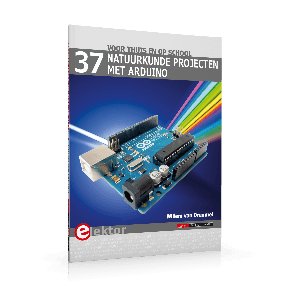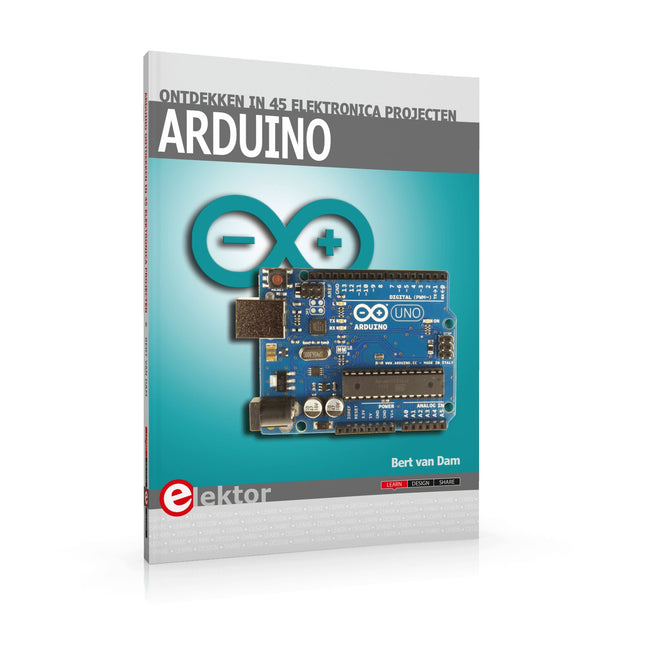De handboeken, projectenboeken en programmeerboeken van Arduino bij Elektor
De Arduino boeken zijn ideaal voor mensen die met de Arduino opensource-computer technologie aan de slag willen gaan. Het programmeren, leren en onder de knie krijgen van de Arduino techniek is dankzij de reeks Arduino handboeken, projectenboeken en programmeerboeken bij Elektor voor iedereen mogelijk. Naast een fysiek handboek, projectenboek of programeerboek van Arduino, kun je ook de PDF-versie van het boek aanschaffen.
Wat is Arduino
Arduino is een open source elektronisch platform dat bestaat uit gebruiksvriendelijke hard- en software waarmee je jouw eigen geautomatiseerde programmeringen kunt maken. De Arduino producten zijn voor veel hobbyisten, makers, hackers en technologieliefhebbers dé manier om op toegankelijke manier kennis te maken met de wereld van programmeren, elektrotechniek en het maken van eigen slimme en creatieve elektronica.
Omdat de Boards van Arduino goedkoop, compact en energiebesparend zijn, kunnen zowel beginners als meer ervaren technici er goed mee uit de voeten. Dankzij het grote aanbod van shields (add-on Boards) kun je alle kanten op van het maken van jouw eigen weerstation tot audiospelers.
Tegenwoordig vind je veel Arduino hard- en software terug in prototypes van Internet of Things (IoT) oplossingen omdat de Arduino makkelijk aan te sluiten is op het internet.
Welke soorten Arduino boeken zijn er:
Er zijn 3 soorten Arduino boeken waarmee jij jouw kennis van Arduino kunt verrijken:
Handboeken
Het Arduino handboek is er voor de lezer, die aan de hand van de voorbeelden uit het handboek, kennis wilt maken met de mogelijkheden van Arduino. Het handboek kan als naslagwerk dienen of als handige gebruikshandleiding bij het werken met de open-source elektronica van Arduino. De Arduino handboeken gaan dieper in op de hardware-componenten van Arduino-boards van nu, en boards die al eerder uitgebracht zijn.
De handboeken van Arduino zijn bij Elektor verkrijgbaar in: Full colour paperback én E-book in PDF-versie.
Projectenboeken
Met de projectenboeken van Arduino vind je de kennis en expertise over onderwerpen als sensoren, LED en Lcd-schermen, moteren en alle andere denkbare toepassingen waar Arduino techniek voor te gebruiken is. Elk project heeft een gedetailleerde instructie en bevat alle info die je nodig om jouw eigen project te laten werken met de technologie van Arduino.
De projectboeken van Arduino zijn bij Elektor verkrijgbaar in: Full colour paperback én E-Book in PDF-versie.
Programmeerboeken
Technologieën veranderen in razend tempo, maar wat vaak hetzelfde blijft, is de taal waarin deze technologie geprogrammeerd is. De moeder van de programmeertalen genaamd C, is in veel van de Arduino projecten nog altijd dé programmeertaal waarmee gewerkt word. Om C en andere programmeertalen te begrijpen verkoopt Elektor de programmeerboeken van Arduino.
De programmeerboeken van Arduino zijn bij Elektor verkrijgbaar in: Full colour paperback én E-Book in PDF-versie.
Arduino boeken en PDF’s kopen bij Elektor
Elektor is al sinds 1960 een begrip in de wereld van elektronica en techniek. De community is sinds de jaren 60 uitgegroeid naar een wereldwijde community met meer dan honderdduizend toegewijde techniekliefhebbers, elektrotechnici en fabrikanten met een passie voor techniek en technologie. Als geautoriseerde distributeur van Arduino is Elektor een betrouwbare partner voor alle Arduino technologie die rechtstreeks van de fabrikant in Italië afkomstig is.
